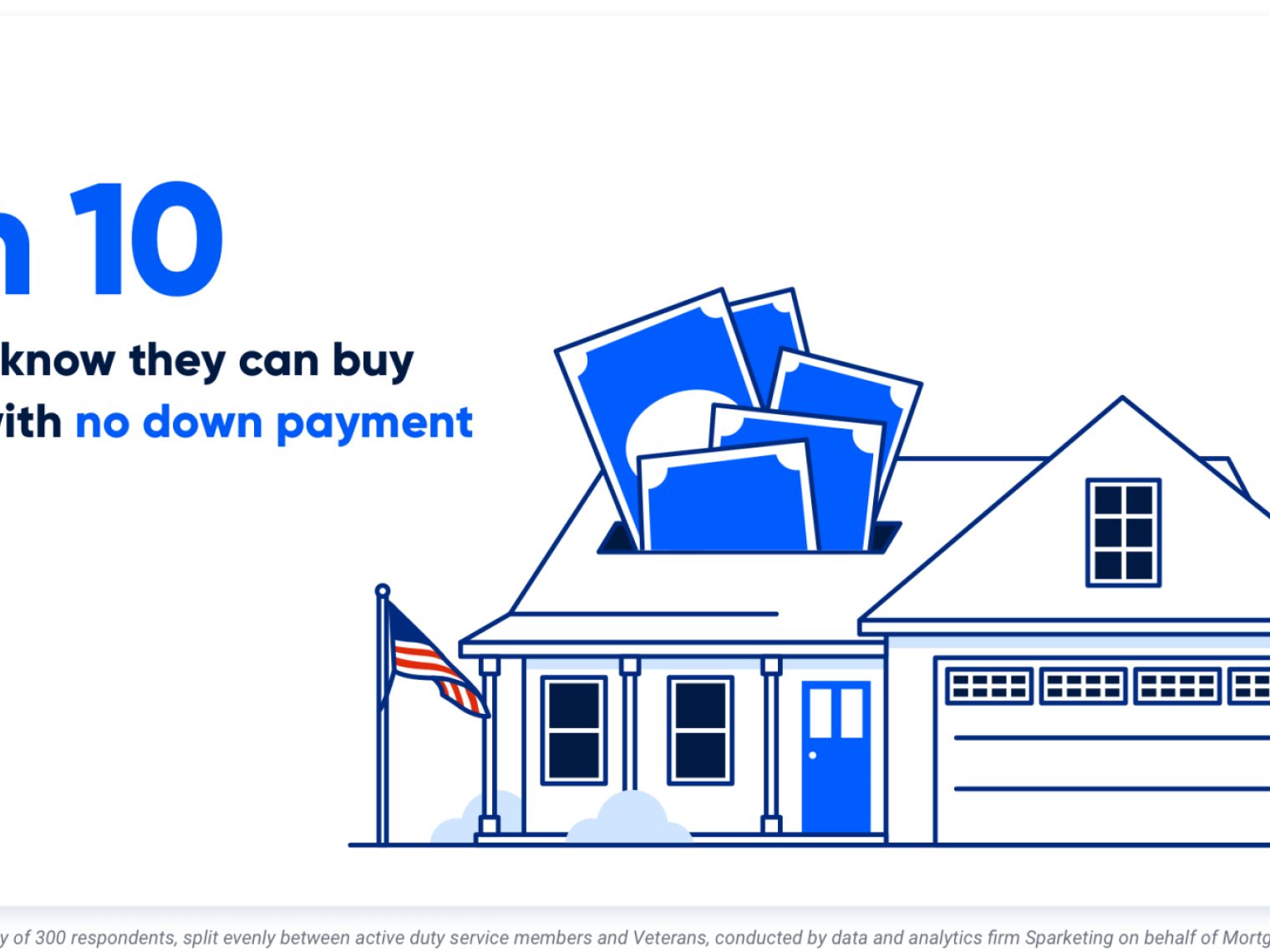Determining how much you can borrow may be more complex than you realize. Factors including DTI, residual income, and the property’s appraised value all play into this.
Once service members start thinking about a home purchase, a common question arises: How much can I get with a VA loan?
It’s a simple question. But the answer? A bit more complex.
How Much VA Loan Do I Qualify For?
A borrower’s specific VA loan amount is heavily based on financial strength. Credit history, a steady income, and any outstanding debts will affect the loan amount and how much a lender is willing to finance. Most lenders also take into consideration your VA entitlement, how much you can afford and loan limits.
Let’s take a more detailed look at five factors affecting your VA loan amount.
Factors Affecting How Much VA Loan You Can Borrow
The VA Guaranty
The VA guaranty is the amount of each VA loan that is backed by the federal government. If the borrower defaults on the loan, the Department of Veterans Affairs pays that guaranteed amount back to the VA lender. Lenders are usually promised 25 percent backing on each VA loan.
VA Entitlement
Veterans without their full VA loan entitlement may need to come up with a down payment for what's otherwise a zero-down mortgage program. VA loan limits determine the maximum amount you can borrow without a down payment and come into play for Veterans with diminished entitlement, either because of a previous default or one or more active VA loans.
Debt-to-Income Ratio
Current income and debts can drastically impact the amount service members can borrow. The debt-to-income (DTI) ratio helps lenders decide how much additional debt a Veteran can handle.
Lenders start calculating the DTI ratio by accessing monthly debts. Only “significant” items (such as the prospective mortgage payment, car loan payment, student loan payment and child support) will figure into that equation. The monthly debt total is then divided by the total monthly income, resulting in a final DTI ratio.
DTI guidelines can vary by lender. Generally, the lower the better, but you could have a high DTI and still be able to obtain a VA loan.
Example: Debt-to-Income Ratio Calculation
| Mortgage payment | $1,000 |
|---|---|
| Auto loan | $200 |
| Student loan | $100 |
| Child support | $100 |
| Total monthly debt | $1,400 |
| Total monthly income | $3,500 |
| Debt-to-income ratio ($1,400 divided by $3,500) | 40% |
Residual Income
Residual income also affects the amount you can borrow with a VA loan. Monthly residual income is the net income available to cover typical living expenses such as food, health care, clothing and gasoline.
The VA employs specific residual income requirements based on region and family size. For example, a Massachusetts family of five needs to have at least $1,062 left over each month after mortgage and other debt payments to meet VA guidelines.
Service members who fall short of residual income standards can often shift to a smaller loan amount for a good shot at VA loan approval.
VA Residual Monthly Income by Region (for loan amounts of $80,000 and above)
| Family Size | Northeast | Midwest | South | West |
|---|---|---|---|---|
| 1 | $450 | $441 | $441 | $491 |
| 2 | $755 | $738 | $738 | $823 |
| 3 | $909 | $889 | $889 | $990 |
| 4 | $1,025 | $1,003 | $1,003 | $1,117 |
| 5 | $1,062 | $1,009 | $1,009 | $1,158 |
Service members who fall short of residual income standards can often shift to a smaller loan amount for a good shot at VA loan approval.
The Property’s Appraised Value
A VA appraisal is mandatory and greatly affects how much you can borrow. You cannot borrow more than the home’s appraised value with a VA loan. Should the appraisal value fall short of the purchase price, buyers have a few options to consider:
- Ask the seller to lower the purchase price
- Attempt to increase the size of the loan
- Make up the difference in cash
- Walk away from the purchase
Conclusion: Get Preapproved!
With so many factors pouring into the equation, there’s only one effective method for estimating a service member’s buying potential: preapproval.
Through preapproval, a VA lender will assess each of the factors mentioned above (with the exception of the appraisal value). This detailed evaluation helps service members determine a workable price range and can be extremely helpful on the house hunt.
Veterans and active-duty service members can start the preapproval process by calling a Veterans United VA loan expert at 855-870-8845.
Answer a few questions below to speak with a specialist about what your military service has earned you.
Related Posts
-
 VA Loan Down Payment RequirementsVA loans have no down payment requirements as long as the Veteran has full entitlement, but only 3-in-10 Veterans know they can buy a home loan with zero down payment. Here’s what Veterans need to know about VA loan down payment requirements.
VA Loan Down Payment RequirementsVA loans have no down payment requirements as long as the Veteran has full entitlement, but only 3-in-10 Veterans know they can buy a home loan with zero down payment. Here’s what Veterans need to know about VA loan down payment requirements. -
 5 Most Common VA Loan Myths BustedVA loan myths confuse and deter many VA loan borrowers. Here we debunk 5 of the most common VA loan myths so that you can borrow with confidence.
5 Most Common VA Loan Myths BustedVA loan myths confuse and deter many VA loan borrowers. Here we debunk 5 of the most common VA loan myths so that you can borrow with confidence.


